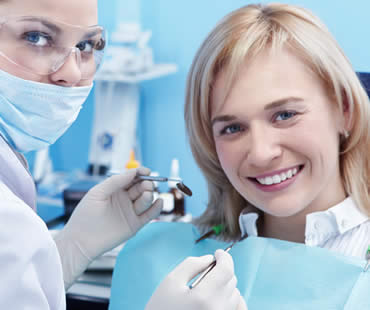
Nov 16, 2018 | Dental Topics 2, Implant Dentistry, Blog
Are you missing one or more teeth? Dental implants are among the best possible solutions for patients missing teeth. Dental bridges and dentures can fill the gaps left by acute decay or gingivitis, but dental implants have many advantages over these other techniques.
Dental implants are typically made of titanium and serve as an artificial root for a missing tooth. They are fused directly to the jawbone and become an excellent foundation for replacement teeth. They are the best possible substitute for a natural tooth that a dentist can provide.
Dental implant therapy has several benefits, among them:
- Dental implants are very convenient. Bridges necessitate cleaning carefully under and surrounding the bridged tooth, and dentures need to be removed and specially cleaned and can utilize messy adhesives to affix them to your mouth. Dental implants are cleaned exactly as you would clean your natural tooth. Brush and floss normally. There is no slippage or cleaning beneath or between the replacement tooth, which is permanently attached to the gum via the dental implant, which fuses to the bone in a process known as ossification.
- Dental implants look better than other replacement teeth. They are intended to appear and function as your natural tooth would.
- Because they’re fused to your bone, they are more secure than dentures or bridges that can slip in the oral cavity, causing pain, muddled speech and problems eating or drinking. Dental implants are incapable of slippage, leaving you to lead your life with confidence and security.
- Dental implants preserve bone by stimulating the bone in your jaw, something necessary for the health of the bone. Without this stimulation, the bone can begin to shrink.
- Dental implants are very durable and can last for decades, if not for a lifetime, when cared for properly.
- Because dental implants don’t require any alterations to the surrounding teeth, those natural teeth are able to remain intact, lending to your overall good oral health.
If you live in the Conyers area contact us today

Nov 1, 2019 | Dental Topics 2, Teeth Whitening, Blog
There is no quicker or easier way to dramatically improve the look of your smile than professional teeth whitening. Your dentist probably offers several whitening options and can advise you about the most appropriate type of whitening treatment to ensure your brightest, whitest smile. No matter which whitening treatment you and your dentist decide will be best, there are several tips you can follow to help you achieve the ideal result:
- Have any existing dental problems treated prior to whitening to avoid side effects or complications.
- Schedule a professional teeth cleaning prior to your whitening appointment to remove buildup of plaque or tartar you cannot remove with home cleaning, and provide the best surface for the whitening treatment.
- Begin brushing with a desensitizing toothpaste several weeks before whitening to limit the sensitivity that can sometimes result from whitening agents.
- If you are extremely prone to dental sensitivity, check with your dentist about taking a painkilling medication before your whitening appointment.
- Consult with your dental office to determine how much time you should allow for your whitening appointment.
- Refrain from eating or drinking anything except water for at least one hour after the completion of your whitening treatment, and avoid ingesting foods and beverages that contain stain-causing agents for no less than 24 hours.
- Make sure to attend any follow-up appointments with your dentist.
- Maintain excellent home oral care habits to extend the life of your whitening procedure.
By following these tips, you can boost the results of your professional teeth whitening treatment and face the world with beautiful, bright smile!
If you live in the Conyers area contact us today

Jul 2, 2021 | Dental Topics 2, Teeth Whitening, Blog
Teeth whitening is the most popular cosmetic procedure that dentists perform today. It can have a dramatic effect on your smile at a smaller cost than other cosmetic procedures. You can whiten your teeth yourself using at-home techniques, but often professional whitening with your dentist’s help achieves the fastest and most effective results. Let’s examine the whitening options provided by most dentists to help you evaluate what might work for you.
Whitening at your dentist’s office:
The dentist applies a whitening product to your teeth containing higher percentages of hydrogen peroxide than what is available in at-home kits. Heat or light may be used also. This technique produces quick, uniform results, but it does sometimes cause temporary gum irritation or tooth sensitivity. This method is expensive, ranging between $500 to $1,200.
Home whitening supervised by your dentist:
A customized mouthpiece will be created by your dentist for you to fill at home with whitening gel, which contains a lower strength of hydrogen peroxide then the in-office gel. You wear the mouthpiece at home for several hours each day, and your dentist supervises the whitening with regular checkups. This method is convenient and less expensive at $300 to $500, but it produces slower results than in-office methods.
Repeating the process:
Whichever type of teeth whitening technique you might choose, remember that it isn’t a permanent repair to your teeth. You will need to repeat the process every year or two. The length of time between treatments will increase if you don’t smoke and avoid foods that are known to stain your teeth, such as coffee and red wine.
We treat patients from Conyers and the surrounding area

Jan 3, 2020 | Dental Topics 2, Teeth Whitening, Blog
Whitening your teeth to improve your smile is a popular cosmetic treatment, but you should understand that it does have some limitations to consider. If products are used correctly or if you seek the professional help from a qualified dentist, you can usually achieve a bright and appealing smile. Here are some things to think about when it comes to teeth whitening.
Methods:
You should not expect over-the-counter methods to whiten your teeth more than a couple of shades. The whitening ingredients available in products at your drugstore are not as strong as those used at your dentist’s office. Consistent and correct use of over-the-counter options can help whiten your teeth, but it may not be as much as some patients hope will occur. On the other hand, professional methods can produce dramatic and quick improvements to the color of your teeth.
Habits:
Certain habits contribute to stains on your teeth and if you don’t limit or stop activities prone to discoloring teeth, your newly whitened teeth may become discolored again. Foods like berries and curry, drinks such as coffee and red wine, and habits like smoking will all likely negatively affect your tooth color.
Restorations:
Bridges, crowns, and laminates might not respond in the same way to whitening agents as your natural teeth do. Ask your dentist about how your restorations might react to teeth whitening.
Side effects:
Tooth sensitivity is the most common side effect of whitening procedures, causing some patients to be unable to handle some methods of treatment. Gum sensitivity is another potential problem, but usually dissipates soon after the whitening procedure. Weakening of a restoration may also occur during whitening treatment, sometimes making it necessary to replace them.
Expectations:
Teeth whitening must be occasionally repeated if you want your bright smile to remain for a lifetime. The effects do not last indefinitely, because aging and activities can stain your teeth. Excessive bleaching may damage your teeth though, so be sure to discuss your whitening treatment with your dentist.
We look forward to seeing you in our Conyers dental office

Feb 28, 2020 | Dental Topics 2, Teeth Whitening, Blog
A brighter smile can make a big difference in your appearance. There are lots of choices today for improving your tooth color. Here are details about some of the options so you can decide which way you may want to whiten your smile.
Eliminating the need:
One way to eliminate the need for teeth whitening is to avoid foods and drinks that are known to cause stains. These include items like coffee, tea, red wine, berries, soy sauce, balsamic vinegar, and curry. If you do consume foods that stain, try to brush your teeth as soon as possible before stains can attach to your teeth.
Whitening at home:
There are many products available at your drugstore to help you brighten your smile at home. Whitening toothpastes and mouthwashes are two types of options, although it can take a while to see results from these methods. Whitening strips are a popular choice, which are covered in a bleaching solution and attached to the fronts of your teeth. Depending on the brand and strength, they might be in place from 5 to 30 minutes daily for a week or two in order to achieve the desired results. Overuse of these strips can increase teeth sensitivity, so be careful not to use them too often.
Professional whitening:
Whitening procedures performed at your dentist’s office are usually the fastest and most effective way to spruce up your smile. Custom trays filled with a higher strength bleaching gel may be made to be worn either in the office or at home later. Another method that must be administered in the office involves a bleaching agent applied to your teeth’s surface and then a bright light to speed up the process. You can typically expect dramatic results from this type of professional whitening.
Schedule your appointment at our Conyers dental office

Jun 3, 2022 | Dental Topics 2, Teeth Whitening, Blog
If you have to think twice about smiling because you’re embarrassed about your yellowed teeth, then it’s time to do something about it. You might consider having your teeth professionally whitened for quick and effective results, but first you may want to try whitening your smile at home with these natural methods.
Hydrogen peroxide:
Most teeth whitening products you find on store shelves contain hydrogen peroxide. The liquid creates bubbles on your tooth enamel that helps remove stains. The higher the concentration of peroxide and the longer you leave it on, the whiter your teeth will become. However, be careful because too much contact can lead to tooth sensitivity. Some people enhance the whitening properties of hydrogen peroxide by mixing it with baking soda to form a paste to put on the teeth.
Strawberries:
Regularly using strawberries on your teeth can whiten them. Just cut them in half and rub them on your teeth, allowing the juice to penetrate. After a while of using this technique, you should notice your teeth becoming brighter.
Lemon or orange peels:
Rubbing the peels of lemons or oranges against your teeth and leaving the residue on for a few minutes can whiten your smile. Be sure to rinse your mouth afterwards. Don’t leave the peel extracts on your teeth for too long because the acidic content may eventually harm your tooth enamel.
Apple cider vinegar:
Stubborn stains like those from coffee or smoking can be especially hard to eliminate. Rubbing apple cider vinegar on your teeth is one way to combat persistent stains. Apply it for no more than ten minutes and then rinse your mouth, because you don’t want to damage your tooth enamel. It take one to two months of consistent daily use to achieve a whiter smile.
Brush immediately:
The most well-known way to maintain a white smile is to brush your teeth after every meal, as well as after drinking a dark colored beverage. This helps get rid of stains and prevent new ones from forming.
We treat patients from Conyers and the surrounding area






